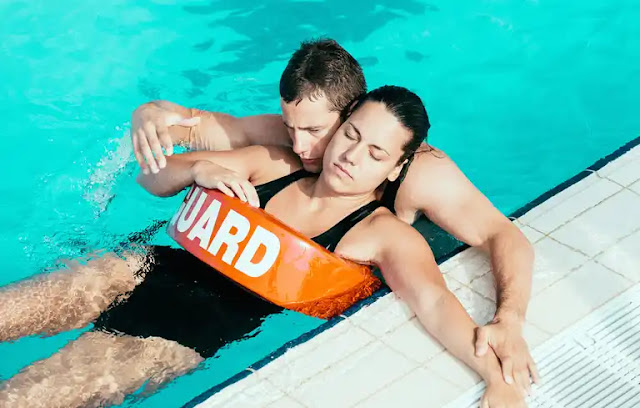
As summer approaches and pools, beaches, and water parks prepare for the influx of visitors, the demand for certified lifeguards surges. In recent years, lifeguard shortages have led to the closure of public pools and limited beach access in cities like Phoenix and Houston, highlighting the critical need for trained professionals in aquatic safety . If you’re considering a career in lifeguarding or looking to recertify, the American Lifeguard Association (ALA) offers comprehensive programs to equip you with the necessary skills and credentials.
Why Lifeguard Certification Matters
Lifeguards are the first line of defense in preventing drowning and ensuring the safety of swimmers. Proper certification ensures that lifeguards are trained to respond effectively to emergencies, perform rescues, and administer first aid and CPR. According to the American Lifeguard Association, their certification programs meet OSHA requirements and reflect the latest findings from the United States Lifeguard Standards Coalition Report .
Moreover, certified lifeguards are essential in mitigating risks at aquatic facilities. A report by the Great American Insurance Group emphasizes that well-trained lifeguards help enforce swim rules and respond promptly to emergencies, thereby reducing potential liabilities for facility operators .
The American Lifeguard Association: A Leader in Lifeguard Training
The American Lifeguard Association has established itself as a reputable provider of lifeguard certification programs across the United States. Their training encompasses a range of courses, including:
First-Time Lifeguard Certification: This program includes training in lifeguarding techniques, First Aid, and CPR/AED. It’s designed for individuals seeking initial certification and can be completed at your own pace .
Shallow Water Lifeguard Training: Tailored for environments like water parks and shallow pools, this course focuses on rescues in water depths of up to 5 feet .
Lifeguard Recertification: For those needing to renew their credentials, ALA offers recertification courses that reinforce essential skills and update participants on the latest safety protocols .
One of the standout features of ALA’s programs is the flexibility they offer. With online materials and instructor-led video training, candidates can complete coursework at their convenience, making it accessible for individuals balancing other commitments .
Preparing for Lifeguard Training: Tips and Requirements
Before enrolling in a lifeguard certification course, it’s essential to meet certain prerequisites and prepare adequately:
-
Swimming Proficiency: Candidates should be able to swim 300 yards continuously, demonstrating breath control and endurance. Additionally, treading water for two minutes without using arms is a common requirement .
Physical Fitness: Regular swimming and endurance training can enhance performance during the course. Practicing breath control and building core strength are also beneficial. Champion lifeguard Annie Fittin emphasizes the importance of core exercises to improve water performance and balance .
Mental Preparation: Lifeguarding demands vigilance and quick decision-making. Being mentally prepared to handle emergencies and enforce safety protocols is crucial.
The Broader Impact of Lifeguard Certification
Beyond personal development, obtaining lifeguard certification contributes to community safety and well-being. Certified lifeguards play a pivotal role in preventing drownings and ensuring that aquatic facilities operate safely. In cities facing lifeguard shortages, such as New York City, the presence of trained lifeguards is vital to prevent tragedies and maintain public confidence in water safety .
Furthermore, lifeguarding offers valuable life skills, including leadership, communication, and problem-solving. These skills are transferable to various professions and can enhance personal growth. As highlighted by the City of Philadelphia, lifeguards often serve as role models and community leaders, fostering positive relationships and inspiring achievement .
Conclusion
In an era where water safety is paramount, becoming a certified lifeguard is both a noble and necessary pursuit. The American Lifeguard Association provides accessible and comprehensive training programs that equip individuals with the skills to save lives and promote safety in aquatic environments. Whether you’re seeking a rewarding summer job, a stepping stone to a career in public service, or a way to contribute positively to your community, lifeguard certification is a valuable investment.



